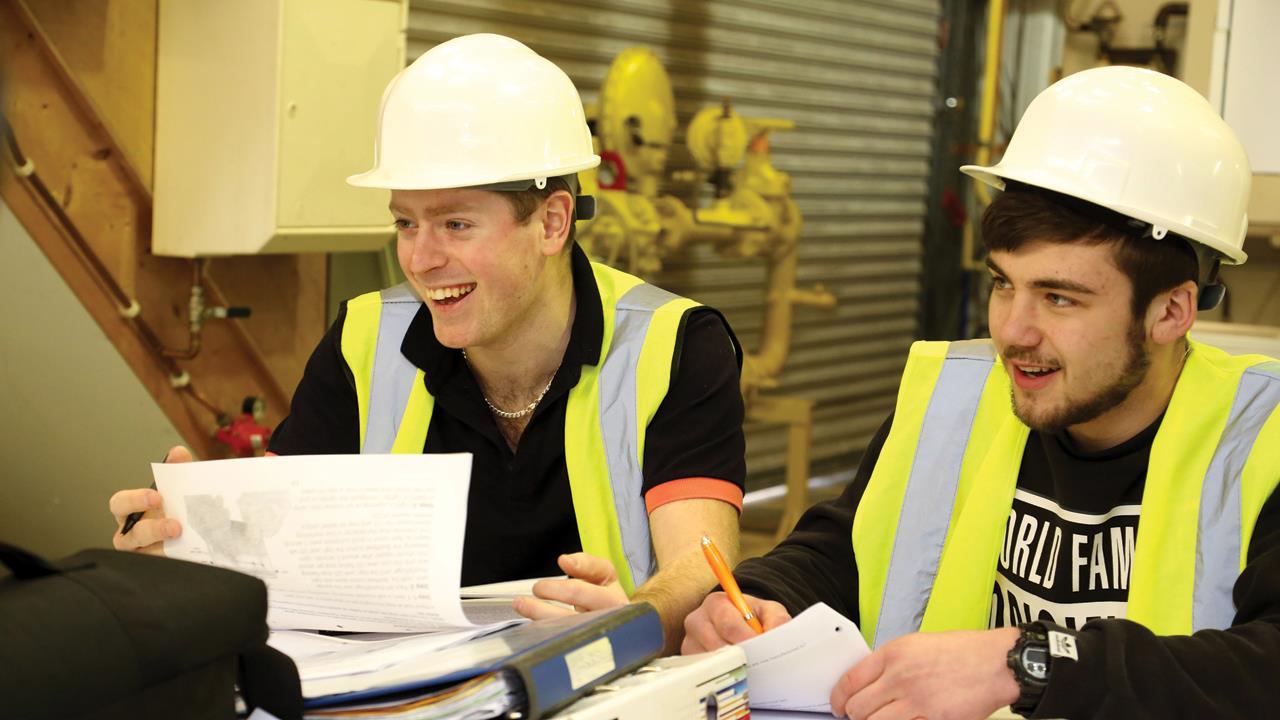


Marie Harris, Strategic Lead for Apprenticeships at Steve Willis Training Centres, debunks some widely believed myths surrounding apprenticeships.
With debates over the Apprenticeship Levy funding system in the news lately, many employers and potential trainees may be left wondering exactly how an apprenticeship would benefit their business or their career.
For a heating or plumbing business looking to grow and futureproof itself, we think it’s simple – they get a hand-picked, hard-working employee who they can train to fit the needs of their business, and the government picks up the training fee (or, at the very least, 95% of it).
For an individual looking to start their career in the industry, it’s the perfect way to earn while they learn: employed in their chosen trade while getting on-the-job and classroom-based training to recognised industry standards.
At Steve Willis Training we’re keen to focus on the positive, and that sometimes means a spot of myth-busting to counter some of the misconceptions that can still hold companies and individuals back when deciding if apprenticeship training is right for them.
MYTH: apprenticeships are for people who didn’t do well at school
Apprenticeships are a valued and recognised career pathway, and gaining practical experience while being paid is an attractive option for many. We have seen an increase in the number of young people coming to us straight after A-Levels, choosing to start their careers with a paid apprenticeship rather than taking on a student debt.
Comprehensive training centre assessment processes mean that employers and applicants can be confident the apprenticeship standards will be met, and that any additional support needed, for example in functional skills, is identified at the start.
MYTH: taking on an apprentice costs too much
There is a cost involved – the employer pays the apprentice’s wages whether they are working on-site, or on day release at the training centre.
But there’s government funding for the training fees and, if you’re a small or medium-sized firm who doesn’t pay the Apprenticeship Levy, you’ll pay either 5% of the cost, or no contribution at all. The government will cover all the fees if your apprentice is aged 16-18 year old, or 19-24 and from a disadvantaged background.
MYTH: apprenticeships lead to minimum wage jobs
The government does set a national minimum wage for apprentices, but many employers pay more. Once qualified, apprentices can and do command salaries commensurate with their skills, and employers are happy to pay them what they’re worth. Many of our former apprentices now run successful heating and plumbing businesses and have started to send their own apprentices to us.
MYTH: apprenticeships are just for teenagers
There’s no age restriction. Apprenticeships are open to all ages and make a great option for anyone looking to change careers or re-enter the labour market. Employers often find that taking on an older apprentice brings experience and maturity which benefits their business. The oldest apprentice we’ve had in the workshop was in his seventies!
MYTH: it’s too much hassle for a small business
As an experienced training provider, we know that what busy employers want is a smooth training programme tailored to their needs.
Training providers can handle everything from advertising the vacancy and filtering applicants, to supporting both the employer and apprentice throughout the course with regular feedback and help with paperwork, right up until the final assessments.
We’re confident that an apprenticeship training programme is a truly worthwhile investment for both trainees and employers. They lead to a cohort of fully qualified, highly competent engineers, and a set of equally happy employers who can see how their businesses will benefit for years to come.
If you'd like to keep up-to-date with the latest developments in the heating and plumbing industry, why not subscribe to our weekly newsletters? Just click the button below and you can ensure all the latest industry news and new product information lands in your inbox every week.